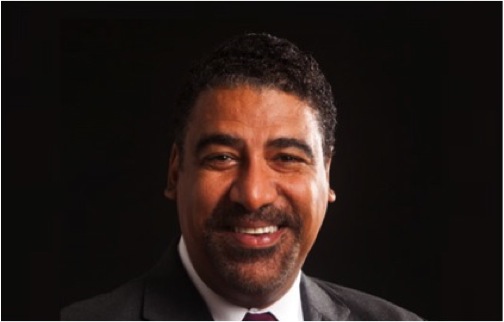By Alexander Britell
Dr Wykeham McNeill was part of a sizable victory by the opposition People’s National Party in Jamaica’s national elections Dec. 29, winning his Western Westmoreland constituency and being appointed the country’s new Minister of Tourism and Entertainment last week. McNeill, a medical doctor by trade, previously served twice as Minister of State focusing on tourism, including in the previous PNP administration. To learn more about the Ministry’s priorities going forward, in a year marked by the 50th anniversary of Jamaica’s independence and what will likely be a strong Jamaican presence at the London Olympics, Caribbean Journal talked to McNeill about tourism, the new entertainment portfolio in the Ministry and an expansion to emerging markets.
What is the current state of Jamaican tourism?
Well, in terms of arrival figures, we’ve had, even with the recession the last few years, we’ve been having growth, that being in the region of 2 or 3 percent, so we haven’t been doing too badly. In the early part of the recession, we had some difficulties, because, while we were retaining our numbers in arrivals, we were having a certain amount of discounting, so our earnings had plateaued, and probably fallen a bit. But we haven’t been doing too badly. Last year, we did quite well. Our final figures are not in yet, but we’ll probably be at about 4 percent [growth]. I don’t have the exact figures right now, but we’re doing quite well.
What are some of the major priorities for the Ministry?
Well, first of all, the Ministry has now been expanded. It’s now the Ministry of Tourism and Entertainment. Back in 2000, it was the Ministry of Tourism, Entertainment and Sport, so it has now taken back the Entertainment portfolio. There are a number of issues we want to do. First of all, we are going to continue the process with our marketing – our marketing has been doing quite well. We will continue more or less with that programme. In terms of the product, however, we had put in place a tourism enhancement fund, as far back as 2004, and we had wanted this fund to be a transformational organization, a transformational body. This was funded by 10 percent of all the tickets that are purchased, and was to be used to enhance the product that we had, to implement the tourism master plans, and to be utilized to develop those things that make us different – the sort of culture and heritage that we have, to be able to better showcase and pull it out. In the last few years, a lot of that fund has been used for marketing and other things. One of the things we will be doing is to redirect and focus it on developing our product, over the next few years, to further differentiate Jamaica, to try and show what is Brand Jamaica. There are some other issues we want to do – governance issues.
One of the things we will be doing is to redirect and focus it on developing our product, over the next few years, to further differentiate Jamaica, to try and show what is Brand Jamaica.”
We want to reestablish the resort boards that we had across the island, and, in terms of the linkages, we feel it’s not enough just to bring visitors to Jamaica. We want to increase their spending, and do things that will increase what they spend – so if the same amount of people come to Jamaica, we will do things that will enable us to earn more out of it, and to retain more of those dollars in Jamaica. So we want to deepen the linkages – with agriculture, with transport, with entertainment, with industry, with manufacturing. Over the period of the 2000s, we had a large increment of hotel rooms in Jamaica. A number of Spanish hotels were built, as well as others, and we feel that with these economies of scale, we need to see how these sectors can better get involved with the tourism industry, so we can pursue more and retain more of the tourism dollars in Jamaica.
Are you looking to other, non-traditional markets?
Very much so. As you know, the three main markets over the years have been the US, as the primary market, now Canada and then the United Kingdom and Europe. We have tried hard to diversify our markets, to try and build them up as much as possible. The thrust now is to try and work on the Latin American market. Some work has started there. I think we need to do more. Of course, the perennial problem is you have to work on the airlift and marketing when you go into these markets, and of course, looking down the line, we want to look at some of the emerging markets, which are potentially big down the line – you ignore them at your own peril. Those are countries like Russia, India, and China, which has airlift issues – but we don’t want to ignore anything. But right now, we are focusing on the primary markets, and we’re looking at Latin America, and looking at what the possibilities are in some of the emerging markets.
Are there any markets for Jamaican tourism whose potential is untapped?
Well, put it this way – when you say markets, Jamaica has tremendous potential. When you look at something like Port Royal, which is a tremendous brand, or Henry Morgan – we have historic sites such as Seville – we have not developed these things. Our attributes, our music, they’re all there. I believe we have not yet utilized the marketing power behind them, because there are powerful brands out there, but I’m not sure we have put all in place to utilize them. I’ll give you an example. We have discussions on and off about different marketing segments. If you look at, for example, the African-American market, and how do you advertise to the African-American market — you have Jamaica as the birthplace of Marcus Garvey, you have his home, you have Liberty Hall – have we developed these things to their full potential, so that they could properly be used? So there are a number of those segments which have not been developed. One of the areas which is very much in the forefront is health tourism, in all its aspects. One of the things we did quite a bit of work on when we were in opposition in our task force was a policy that would look at all aspects of health tourism. We feel that Jamaica is ideally suited and ideally placed, based on its location, to really get into health tourism in a big way.
You mentioned the addition of the Entertainment portfolio. What are some of the things the Ministry is working on in that regard?
There are a number of things we have to look at in the entertainment sector. One of the problems with that sector is that it’s spread out among a number of ministries. There are sections that will be in the Ministry of Youth and Culture, and so the Culture Ministry has a part. And then there are parts in the Ministry of Industry and Commerce – the entertainment sector is applicable there, especially the film industry, and in our ministry, there will be another part of it. There are a number of things we want to look at, and another thing we are going to have to do is put together some inter-ministerial committees that will look at it in a holistic way. And then we can determine a sort of common policy thrust, and then each person will play his or her role. But in a general sense, entertainment and tourism is a tremendous synergy.
There’s a natural synergy between entertainment, the hotel industry and the attraction industry. We have to see how we’re going to pull it all together.”
And Jamaica’s entertainers are among the best ambassadors for tourism in Jamaica. You go anywhere and they speak about Bob Marley – or the fact that “One Love” is the theme used in our advertising. Even our current artists – Shaggy, Sean Paul, generally speaking our music has been out there. One of the things we want the government to do is ensure that the proper policies and legislation are in place so that there’s a fertile ground for entertainers to come up, and, secondly, to put in place a framework which allows them access. There’s a natural synergy between entertainment, the hotel industry and the attraction industry. We have to see how we’re going to pull it all together. While we handled it in the Ministry from 2000 to 2002, it really is a fairly new addition, and we’re going to be working on putting a sort of common policy together, and work together on this.
The Olympics are coming up, and Jamaica is likely to be represented well in London – what are some of the ways you can take advantage of that?
Well, in Jamaica we are just excited and waiting on the Olympics. We expect great things in the coming Olympics, and, of course, given our performance just in the past Olympics and past Track and Field events, the fact of the matter is that the spotlight will be on Jamaica. Certainly, the Ministry of Tourism will be working closely with our athletes, and our Olympic Association, to see how we can have that spotlight on Brand Jamaica. Over the years, we’ve been doing it, and going in to the Olympics, it will give us a tremendous opportunity. The second thing is that, at the same time you have the Olympics, it will also be the 50th anniversary of our independence. So we will have all of that celebration taking place as well, and there are a number of events that will be planned, here in Jamaica as well as abroad. That should be very exciting, and I think it’s going to be a tremendous opportunity, not just for the tourism sector, but for industry and others. It’s going to put Jamaica at the forefront at that point in time. So we’re very excited, and we’re working on some of those prospects now.
US Private Equity Firm Buys Controlling Stake in Largest Jamaican Fuel Retailer

